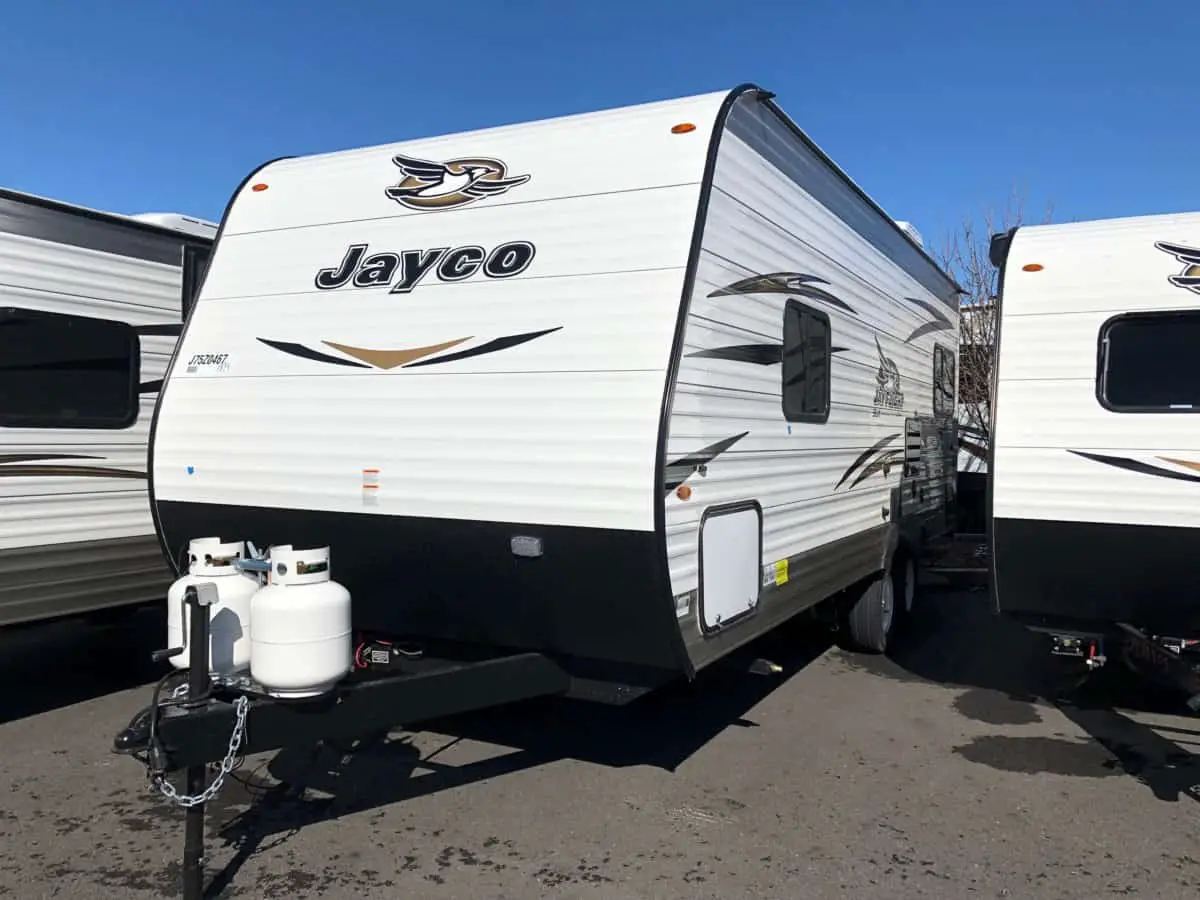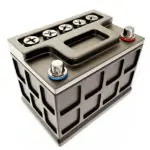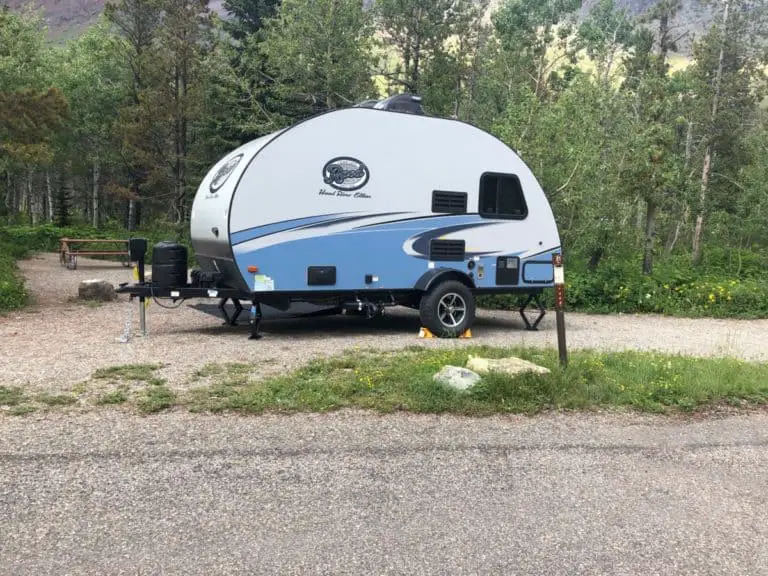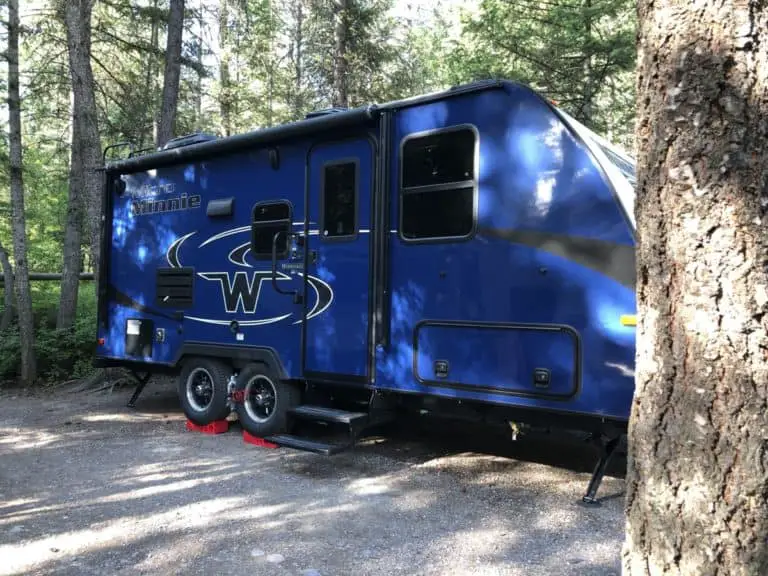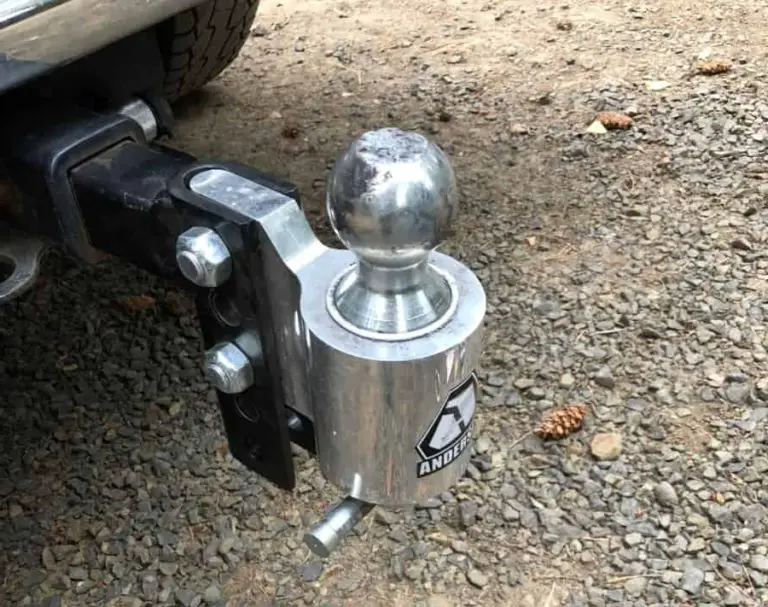Fiberglass vs Aluminum Travel Trailers, What is Better?
There are two main types of siding that you will have to choose from when shopping for a travel trailer, fiberglass or aluminum. Both have benefits and weaknesses, and each make up about half the market of recreational vehicles.
What is the difference between Fiberglass and Aluminum sided Travel Trailers, and what is better? In general, fiberglass siding is a better choice for long term convenience and practicality. Fiberglass sides are smoothe whereas aluminum will have ridges for each piece of siding. Aluminum is easier to repair but harder to maintain. Fiberglass are easy to maintain but require more effort to repair.
Travel trailers are one of the most popular types of RV due to their convenience. These RVs are towed behind another vehicle which can be easily hitched/unhitched once parked. There are many different types of models, and travel trailers come in a wide variety of luxury levels. Typically they range from $11,000 to $35,000 depending on these factors. Regardless of the material, your trailer should last 10-20 years (or even longer, based on the frequency of usage and care).
The first travel trailers were made of steel, which was hearty but had several problems, including rust. You can still buy steel trailers today, but RVs have progressed over the past 100 years to aluminum and fiberglass. Aluminum sided trailers are easy to spot because they have ridges, while fiberglass trailers are smooth. There are many more differences between the two types of travel trailers, which I will explain below. Be part of the modern movement, and choose your next travel trailer wisely!
Aluminum Siding Travel Trailers
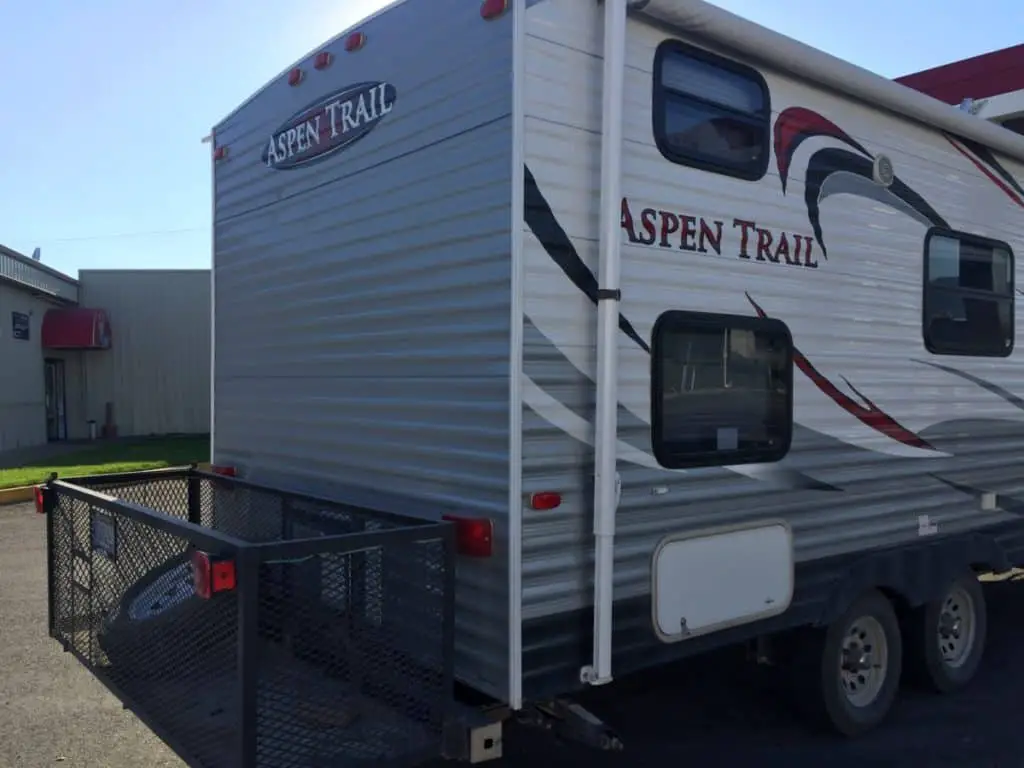
Aluminum was one of the original types of siding used in travel trailers (after steel). These types of trailers date back to the 1940s, and are still available today. You can usually pick out an aluminum trailer by the riveting, corrugation, seams, and/or shiny finish. Some brands that produce aluminum sided trailers include Airstream, Livin’ Lite, and Grand Design. Many brands produce both aluminum and fiberglass trailers.
Aluminum siding is one of the cheapest travel trailer options, and it’s easier to replace parts of your aluminum siding in case of an accident or wear and tear. However, aluminum is easily dented, sometimes even hail can be an issue. Aluminum siding won’t fade as easily as fiberglass (which is important if you’re in a sunny environment!).
There is much debate over whether aluminum or fiberglass is lighter, and it really depends on the model, layers, and framing. In general, aluminum is lighter but fiberglass is more aerodynamic. Since aluminum trailers have been around for around 80 years, some people feel that this is the most reliable option.
Caring for an Aluminum Trailer
Cleaning aluminum travel trailers is a bit trickier than other types of trailers. You need to use non-abrasive brushes, and you must be careful that water does not get in between seams (this is particularly problematic if you’re using a power washer). Rinsing your trailer, and then hand washing it produces the best results. Any all-purpose cleaner should be okay to use on your RV, and you can use bleach on mold/mildew. You can wax your aluminum trailer, but avoid any decals. Clean it regularly to avoid buildup and leaks!
Adding paint or polish can help seal and protect the aluminum. Click here for a simple guide on how to polish an aluminum trailer. Because aluminum oxidizes quickly, it’s a good idea to cover your trailer when not in use (even when it’s indoors). You can purchase a camper cover or even use a tarp. Camping world and other retailers have a selection of covers. There are also custom options available if you have an odd sized trailer.
Tip: With both aluminum and fiberglass, decals can be difficult to maintain. Using sealant or wax can help, but it’s also important to avoid too much abrasion (which can cause lifting). Textured decals require special care.
Pros:
- Cheaper
- Easier to replace/fix parts
- Usually lighter (depending on model)
- Less prone to fading
Cons:
- Harder to clean
- Less resale value
- Prone to denting
Fiberglass Sided Travel Trailers

Fiberglass siding is one of the most contemporary materials used in travel trailers, although the first fiberglass trailers date back to the late 1960s/early 1970s. This material is made of thin glass fiber. At first glance, fiberglass trailers look smooth and seamless, and they come in a variety of styles/colors. Fiberglass is more visually appealing (unless you’re a fan of more classic models, such as aluminum Airstream trailers), and has a better resale value. Some brands that offer fiberglass include Winnebago, Jayco, and Oliver Travel Trailers.
Fiberglass is aerodynamic, which saves on gas mileage. If you’re planning to take your trailer on long distances, then aerodynamics is important. Fiberglass is also easier to clean, and less likely to become dented. Travel trailers with fiberglass siding are more insulated and noise resistant, except when compared to an aluminum trailer that is layered.
There are also more options available for fiberglass-sided trailers, due to their current popularity and the fact that the material can be made in a variety of colors. However, fiberglass fades more quickly and you may have more issues with delamination. If you damage this siding you will usually have to replace the whole panel, rather than a small section. Fiberglass is a good option if you like and trust “newer” technology and want to maintain resale value.
Caring for a Fiberglass Trailer
Cleaning fiberglass siding is fairly easy. You can wash and wax your trailer, and even use a bug/tar remover and brushes. Laundry detergent works well for washing or purchase an RV cleaner. Camping World has a variety of cleaners, or you can always buy your favorite brand on Amazon. It’s a good idea to get your trailer professionally waxed annually both to increase shine and to protect it from wear and tear. Keep a close eye on signs of delamination, which can be prevented with wax and/or sealant.
If you can keep your travel trailer indoors when not in use this is ideal for long-term care. Otherwise, it’s wise to invest in a cover, and park in a location that does not receive direct sunlight. Get an all-weather protective and reflective cover. This is especially important with fiberglass trailers, due to fading.
Tip: With any type of RV, pay attention to care instructions for the roof as well! Travel trailer roofs are usually made of rubber or fiberglass. Rubber requires special care with non-acidic substances. Many people forget about their roof, which results in long-term damage, including leaks. If you’re short on time and materials you can also get your trailer professionally washed from around $100-$200.
Pros:
- Aerodynamic
- Insulated/noise resistant
- Easy to wash
- Better resale value
- More options
Cons:
- More expensive
- Fades more quickly
- Harder to replace/fix siding
The Verdict
Unless you’re on a tight budget or already have a preference for aluminum, a fiberglass sided travel trailer is your best option. Given how quickly travel trailers depreciate, the resale value of fiberglass is worth the investment. In general, fiberglass is also lower maintenance than aluminum, and hold up better against weather and denting.
Regardless of which trailer you pick, make sure to perform preventative maintenance to avoid expensive issues down the road! The better you care for your RV, the longer life it will have. Before purchasing a travel trailer, think hard about your camping needs, the conditions you will be using (and storing) it in, and your ability to keep up with maintenance.
Shopping for a travel trailer? Check out our guide to getting the best deal!
Be the first to be notified about FREE tips, hints, coupon codes, and email-exclusive information. All for FREE!

